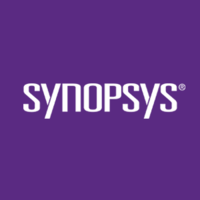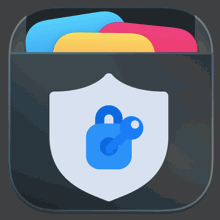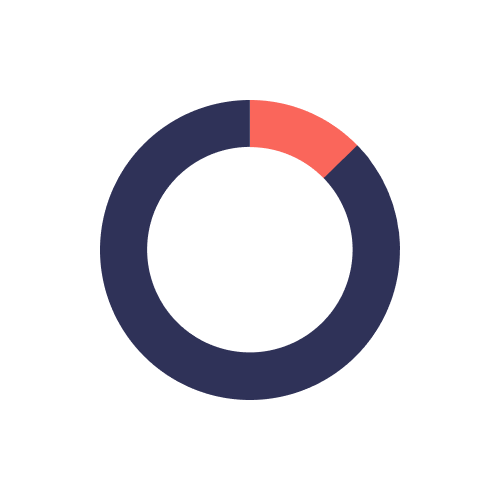Description

ImmuniWeb® On-Demand

Synopsys
Comprehensive Overview: ImmuniWeb® On-Demand vs Synopsys
ImmuniWeb® On-Demand and Synopsys are two distinct offerings in the cybersecurity and software security sectors. Here's a comprehensive overview addressing the specified aspects:
a) Primary Functions and Target Markets
ImmuniWeb® On-Demand:
- Primary Functions:
- ImmuniWeb® On-Demand provides a suite of cybersecurity solutions that focus on application security testing, such as web application security, mobile application security, and cloud security assessments. It employs AI technologies to enhance security testing processes, ensuring high-quality and efficient vulnerability scanning, penetration testing, and security auditing.
- Target Markets:
- The target market includes enterprises and organizations across various industries that require scalable and adaptable security testing solutions. Specifically, it serves businesses that prioritize security in their digital transformation processes, including sectors like finance, healthcare, retail, and government.
Synopsys:
- Primary Functions:
- Synopsys offers comprehensive software integrity solutions that cater to static analysis, software composition analysis, and dynamic application security testing. Its tools are designed for enhancing the software development lifecycle by integrating security measures that identify and mitigate vulnerabilities early in the development process.
- Target Markets:
- Synopsys targets large-scale enterprises and software development organizations looking to integrate security into their DevOps and DevSecOps practices. Industries include technology, automotive, aerospace, and any sector where software reliability and security are critical.
b) Overall Market Share and User Base
-
ImmuniWeb® On-Demand:
- ImmuniWeb is known for its innovative use of AI in cybersecurity, which has attracted a growing client base among businesses seeking efficient and cost-effective security solutions. While specific market share figures are not widely published, ImmuniWeb has gained recognition in the industry, particularly among medium to large enterprises that value flexible security testing options.
-
Synopsys:
- Synopsys holds a significant portion of the market share in the application security domain, attributed to its integrated product offerings within large enterprise environments. As a well-established player, Synopsys serves a wide user base, including many Fortune 500 companies, leveraging its reputation and broad suite of products.
c) Key Differentiating Factors
-
Technological Approach:
- ImmuniWeb® On-Demand stands out with its focus on AI-driven testing solutions, which offer automation and efficiency enhancements in identifying vulnerabilities. This AI integration provides a unique edge in terms of cost-effectiveness and adaptability to specific business needs.
- Synopsys differentiates itself through its comprehensive suite of software integrity tools, aimed at thoroughly integrating security into development processes. It provides an end-to-end security solution covering different phases of software development.
-
Integration and Flexibility:
- ImmuniWeb provides seamless integration with various platforms and is known for its flexibility, allowing businesses to scale their security testing as needed.
- Synopsys offers robust integration capabilities within the software development lifecycle, making it a preferred choice for organizations with mature DevSecOps practices.
-
Customer Focus:
- ImmuniWeb typically appeals to companies looking for flexible, scalable, and cost-effective solutions without compromising on the quality of security testing.
- Synopsys appeals more to larger enterprises that require a broad, integrated suite of security solutions that can be embedded directly into complex software development environments.
In summary, both ImmuniWeb® On-Demand and Synopsys offer valuable security solutions, but they cater to slightly different market needs and organizational sizes, with differentiation largely based on technology use and integration capabilities.
Contact Info

Year founded :
Not Available
Not Available
Not Available
Not Available
Not Available

Year founded :
Not Available
Not Available
Not Available
Not Available
Not Available
Feature Similarity Breakdown: ImmuniWeb® On-Demand, Synopsys
To provide a feature similarity breakdown for ImmuniWeb® On-Demand and Synopsys (specifically its security offerings like Black Duck, Coverity, and others), we need to focus on several aspects: their core features, user interfaces, and any unique features. Keep in mind that specific product names and features might vary or update over time, so it's always best to verify with the most recent product documentation or announcements.
a) Core Features in Common
Both ImmuniWeb® On-Demand and Synopsys provide a range of security testing services, primarily revolving around application security. Here are the core features they share:
-
Vulnerability Detection: Both platforms offer automated tools to detect vulnerabilities in applications, such as SQL injection, cross-site scripting (XSS), and other common web vulnerabilities.
-
Code Analysis: Static and dynamic code analysis is a common feature to identify issues in the codebase that could lead to security vulnerabilities.
-
Compliance Assessment: They both offer some level of compliance checks for various standards (e.g., OWASP, ISO, GDPR) to ensure that applications meet industry and regulatory requirements.
-
Risk Assessment and Prioritization: Both platforms provide risk scoring or prioritization to help users understand the severity and impact of identified vulnerabilities.
-
Integration Capabilities: They are able to integrate with CI/CD pipelines and other development tools to facilitate seamless security testing within the development lifecycle.
-
Reporting and Alerting: Both services offer comprehensive reporting tools to summarize findings and alert users to critical issues.
b) User Interface Comparison
-
ImmuniWeb® On-Demand: Known for a user-friendly and intuitive interface, it aims to simplify the user experience with dashboards that provide clear visibility of vulnerabilities and compliance status. The interface often emphasizes clarity and ease of understanding, catering to both technical and non-technical stakeholders.
-
Synopsys: The user interface for Synopsys tools varies slightly across different products (e.g., Coverity, Black Duck), but generally aims to provide detailed insights and flexibility for power users. They offer robust dashboards with multiple views for deeper dives into the data, potentially requiring a bit more learning curve for new users.
c) Unique Features
-
ImmuniWeb® On-Demand:
- AI-driven Testing: ImmuniWeb incorporates AI into its security testing to enhance the efficiency and accuracy of its vulnerability scanning.
- Managed and Unmanaged Asset Discovery: They offer continuous asset discovery that helps identify both managed and unmanaged web applications and APIs.
- Flexible Model Options: Offering both pay-as-you-go and subscription pricing models helps accommodate varied business needs.
-
Synopsys:
- Comprehensive Coverage across SDLC: Synopsys provides extensive tools covering different stages of the software development lifecycle, including design-time, coding, testing, and deployment.
- Software Composition Analysis (SCA): With tools like Black Duck, Synopsys excels at managing open-source security and compliance.
- Developer-Centric Tools: Offers more customizable options designed for integration into developer workflows and IDEs, helping developers quickly remediate identified issues.
In summary, both platforms serve robust application security purposes with some overlap in capabilities. ImmuniWeb® leans towards AI-enhanced testing and user-friendly engagement, while Synopsys offers a more comprehensive suite of tools that cover additional aspects of the development lifecycle and emphasize deep integration with developer tools.
Features

User-Friendly Interface
Comprehensive Security Assessment
Customer Support
Continuous Monitoring
Compliance and Risk Management

Security and Compliance
Development and Testing Tools
Software Quality and Performance
Best Fit Use Cases: ImmuniWeb® On-Demand, Synopsys
ImmuniWeb® On-Demand and Synopsys are both prominent players in the cybersecurity and software security testing space, but they cater to slightly different needs and therefore have different ideal use cases. Let’s explore these:
ImmuniWeb® On-Demand
a) Best Fit Use Cases:
-
Small to Medium-Sized Enterprises (SMEs):
- Scalability and Simplicity: ImmuniWeb® On-Demand's cloud-based and on-demand nature makes it particularly well-suited for SMEs that need flexible, scalable, and easy-to-deploy security assessment solutions without significant upfront investment.
- Limited In-House Security Expertise: Provides a straightforward user experience with actionable insights, suitable for businesses that may not have a dedicated in-house security team.
-
Agile/DevOps Environments:
- Integration and Automation-Friendly: Provides a platform that integrates well into continuous integration/continuous deployment (CI/CD) pipelines, supporting agile environments where rapid development and deployment cycles necessitate frequent security assessments.
-
Compliance-Driven Projects:
- Regulatory Needs: Offers pre-configured scans to address compliance requirements such as GDPR, HIPAA, and PCI-DSS, making it ideal for companies that prioritize meeting regulatory standards.
-
Web Applications and API Testing:
- Web Security Focus: Well-suited for businesses that primarily require security testing of web applications and APIs, given its specialization in these areas.
Synopsys
b) Preferred Use Cases:
-
Large Enterprises and Complex Architectures:
- Comprehensive Solution Set: Synopsys provides an extensive range of tools for various aspects of software security and quality, including static analysis, dynamic testing, and software composition analysis, making it ideal for large organizations with complex and diverse IT environments.
-
Development-Centric Companies:
- Integrated Development Security: Offers comprehensive tools for developers to incorporate security early in the software development lifecycle (SDLC). Synopsys tools are ideal for organizations where secure coding practices are critical and need embedding directly within development environments.
-
Industry-Specific Requirements:
- Customization and Control: Can be customized to meet unique industry requirements that demand high precision and extensive configuration, suitable for industries with specific security needs like finance, healthcare, and automotive.
-
Comprehensive Risk Management:
- Enterprise-Level Risk Insight: Provides broader and deeper insights into software vulnerabilities and risks, making it a valuable tool for enterprises looking to manage risk comprehensively across all software assets.
d) Catering to Different Industry Verticals or Company Sizes:
-
ImmuniWeb® On-Demand:
- Industries: More tailored for industries where web application security is paramount, such as e-commerce, tech startups, and digital services. It’s also advantageous for domains needing regular regulatory compliance testing.
- Company Size: Fits well with small to medium-sized businesses needing efficient and cost-effective solutions without extensive IT security infrastructure.
-
Synopsys:
- Industries: Provides deep integrations suitable for sectors with complex IT and compliance demands, including automotive, healthcare, finance, and technology.
- Company Size: Perfect for medium to large enterprises with more established IT departments capable of leveraging comprehensive security tools for a wide range of applications and environments.
Both ImmuniWeb® On-Demand and Synopsys offer distinct solutions based on the specific requirements of businesses, enabling them to meet their security and compliance needs effectively.
Pricing

Pricing Not Available

Pricing Not Available
Metrics History
Metrics History
Comparing undefined across companies
Conclusion & Final Verdict: ImmuniWeb® On-Demand vs Synopsys
To provide a comprehensive conclusion and final verdict between ImmuniWeb® On-Demand and Synopsys, we need to assess various factors such as functionality, ease of use, cost-effectiveness, and support services. Both products have their own merits and may cater to different needs depending on the specific requirements of an organization.
a) Best Overall Value
ImmuniWeb® On-Demand: This tool is particularly strong in automated and continuous security testing, providing a user-friendly interface with AI-driven analytics. It excels in delivering a comprehensive dashboard for vulnerability management and has a pay-as-you-go pricing model, which can be highly economical for small to medium-sized enterprises (SMEs) that require sporadic testing.
Synopsys: Known for its robust suite of security testing tools, Synopsys offers extensive capabilities in static, dynamic, and interactive testing. It is a great choice for large enterprises needing deep integration across the software development lifecycle (SDLC) with granular control and comprehensive audit trails.
Overall, ImmuniWeb® On-Demand may represent the best value for SMEs and start-ups looking for flexibility and cost-effectiveness, while Synopsys may provide superior value for larger organizations needing comprehensive, integrated solutions.
b) Pros and Cons
ImmuniWeb® On-Demand
Pros:
- User-friendly interface with AI-driven insights.
- Flexible pricing model, advantageous for SMEs.
- Fast, automated testing with actionable insights.
- Good for organizations requiring periodic security assessments.
Cons:
- May lack the deep integration features needed for large enterprises.
- Might require additional manual testing for advanced applications or custom protocols.
Synopsys
Pros:
- Comprehensive set of tools suitable for static, dynamic, and interactive testing.
- Deep integration with development pipelines (CI/CD).
- Strong reporting capabilities with comprehensive data and compliance support.
Cons:
- More expensive, which might not be suitable for smaller organizations.
- Can have a steep learning curve for newcomers.
- May require significant customization and setup effort.
c) Recommendations
For users deciding between ImmuniWeb® On-Demand and Synopsys, the choice largely depends on the scale and specific needs of their organization:
-
For SMEs or Startups: ImmuniWeb® On-Demand is recommended due to its flexible pricing, ease of use, and efficient automated testing capabilities. It allows these organizations to manage security assessments without committing significant resources upfront.
-
For Large Enterprises: Synopsys would likely be the better choice, offering a more comprehensive security solution suite that can be integrated throughout the development lifecycle. Organizations with dedicated security teams that require extensive testing and compliance tracking will benefit more from Synopsys’s robust integration and comprehensive features.
Ultimately, organizations should evaluate their existing security practices, budget constraints, and integration needs to make the most informed decision. It may also be beneficial to engage in trials or consultations with both vendors to better understand how each tool can be tailored to fit organizational requirements.
Add to compare
Add similar companies



